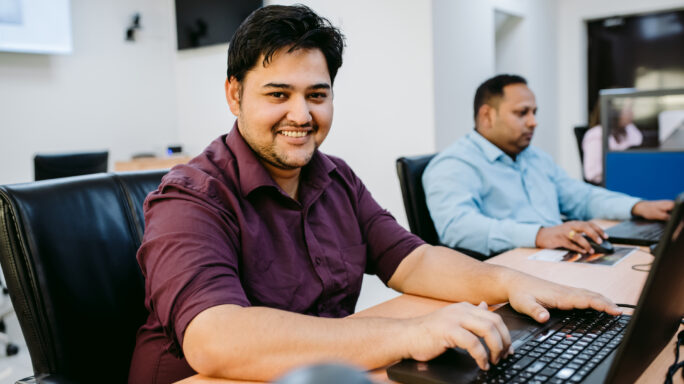Finance Futurists: Why seasoned finance professional Nunzio Giunta always places people above money
The Finance Futurists are an elite group of leaders who embrace constant evolution as a necessity in the ever-changing world of finance. More than number-crunchers, these leaders represent a new era for finance—one defined by a shift from pure analytical expertise to emotional intelligence and strong communication skills as well. Here, we spotlight one of […]

Meet the Finance Futurists
Discover their advice and insights on how to become a trailblazing CFO.

When and how did you start your career in finance?
Nunzio Giunta: I graduated in the early 1990s when Australia was in the midst of a recession – there were no jobs for accountants at the time. So, I took a voluntary role for a finance broker, which is how I got my opportunity in the finance sector and went on to get more senior finance roles. In 1995, I saw an opportunity. If you think about accounting software at the time, a lot of businesses in Australia were using manual bookkeeping and I thought there was a great opportunity to take on an accounting software solution. So, we started an accounting software implementation business. We went on this journey to implement accounting software for small businesses – we ended up developing the first invoicing solution for the Palm Pilot in Australia. The business was then at a turning point where we needed to expand to the US and raise US funding. I recall very clearly thinking of my son and our business and thinking, “hang on – if I go on this journey it means taking my family to the US and possibly missing my son growing up.” So, I moved onto the path of being an outsourced CFO for not-for-profits. This was the best decision I ever made, for my family and myself.What’s the initiative or accomplishment you’re most proud of throughout your career?
NG: About five years ago I came across a Ted Talk from Simon Sinek asking, “what was your why?” I sat down and forced myself to figure that out. I realised that in not-for-profit work, you’re dealing with hugely passionate people and a lot of those people get themselves in trouble for focusing on the cause but not the finance. So, my why – and the business’ why – is about helping those people continue to do good in their community. The thing I’m most proud of is that we’re an organisation that’s there to protect these people and help add value to the community.Many people and industries struggled during the height of the COVID-19 pandemic. How did you adapt to its economic impact?
NG: If you think about the last 30 years, there’s always a crisis. There will always be major events that will cause disruption to commerce and to society. It’s making sure you understand that there is a pattern, and there will always be ups and downs. Finance professionals must understand this will be the case—that when things are going well, you consolidate and make sure you have measures in place to protect against those downs and put yourself in a position to course-correct. A rocket is off course 95% of the time. As a rocket is moving forward to its target, it must course-correct. It’s only when you start that journey that you start to course-correct. So, as finance professionals, are you getting information that allows you to get to your goals and objectives – to course-correct?Technology is playing a major role in helping finance professionals get that crucial information. What do you view as the biggest impact technology is having on finance today?
NG: It’s moving finance teams away from being data processors to actually providing value as trusted advisors. I’ve been on a journey with a number of finance teams where they’re seen as the number crunchers. Now, a good finance team is there to support the business to make informed decisions – to interpret information, not just to build information.Finally, what advice would you give to budding finance professionals?
NG: I see a lot of people applying for jobs and my advice is it’s about experience – having mentors and people around you to provide that experience to grow in YOUR roles. If you can do some voluntary work like I did, that gives you connections and experience to grow into those roles. That’s the advice that I give people who are leaving university today.Meet the Finance Futurists
Discover their advice and insights on how to become a trailblazing CFO.






